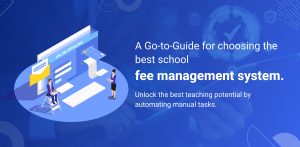Union Budget 2017-18 – The trending topic that is being echoed around the nation receiving different responses from the citizens and netizens. Union Finance Minister Mr. Arun Jaitley presented the Union Budget 2017-2018 in Lok Sabha on February 1, 2017, the fourth budget by the Narendra Modi government. This budget is followed by the demonetization move by Prime Minister Narendra Modi on November 8, 2016, scrapping high-value currency notes.
The 2017 Union Budget, laid down by the Finance Minister, was broadly focused on 10 themes — the farming sector, the rural population, the youth, the poor and underprivileged health care, infrastructure, the financial sector for stronger institutions, speedy accountability, public services, prudent fiscal management and tax administration for the honest.
Budget 2017 for education, laid emphasis on various programs to reform the higher education sector of the country which included a National Testing Agency, Swayam online platform with 350 online courses, Autonomy to colleges and institutions based on accreditation, All India Institute of Medical Sciences in Jharkhand and Gujarat etc.
In his budget speech, the Hon’ble Finance Minister said that there will be a National Testing Agency for major entrance examinations, i.e, a single authority that will conduct entrance tests for all higher institutions like JEE, NEET, NET and other prestigious exams.
It may be mentioned that last year, the Central Board of Secondary Education (CBSE) had asked the University Grants Commission (UGC) to conduct the National Eligibility Test (NET) on its own as the board wanted to focus majorly on academics and work on improving the quality of education. As per reports, CBSE had conveyed to the HRD Ministry that conducting exams for various government bodies puts a lot of burden on them.
Keeping in view the consideration of the CBSE board, the minister informed that National Testing Agency will be set up to organize all the entrance examination, freeing CBSE, AICTE and other agencies and reducing their burden.
“We propose to set up a National Testing Agency as an autonomous and self-sustained premier testing agency to conduct all entrance exams to higher education. This would free the Central Board of Secondary Education (CBSE) and the All India Council for Technical Education from administrative responsibility so that they can focus more on academics,” Union Finance Minister Mr. Arun Jaitley said while presenting the Union Budget 2017-18.
“In higher education, the government will undertake reforms in the UGC. Good quality institutions would be enabled to have greater administrative and academic autonomy,” Jaitley said. The proposal to grant autonomous status to colleges identified on the basis of accreditation and ranking is believed to be made in full view of the annual learning outcomes.
The main highlight of the budget in the education sector was the introduction of 350 online courses. The government also proposed to create an Innovation fund to promote local innovation; ICT-enabled learning and transformation, whose prime focus would be on 3479 educationally backward blocks.
It can be seen that the 2017 Budget also emphasized on giving a major push to science education in schools by bringing forth ICT-enabled education. It has to be understood that technology-driven education is important to prepare students for future jobs that are dependent on technology. Technology intervention in the field of education is a necessity and technology-driven education should be made mandatory in schools.
In the Budget 2017 for education, setting up an autonomous National Testing Agency for conducting entrance exams to higher educational institutions will be considered a welcome move as CBSE now can focus on its core areas and work on improving the quality of education.












